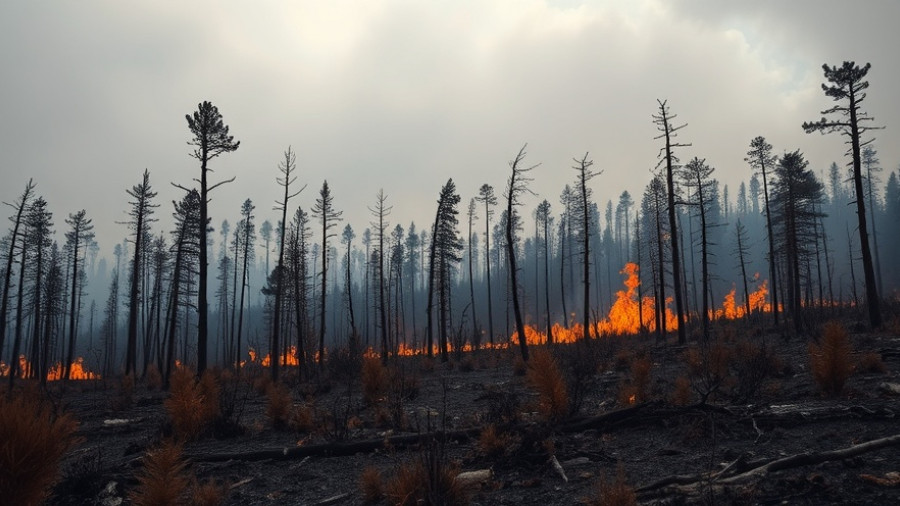
Wildfire Aftermath: A Call to Action for Saskatchewan's Forestry Sector
The summer of 2025 has left northern Saskatchewan reeling, as more than 2.9 million hectares of forest have been scorched by devastating wildfires. Cumberland MLA Jordan McPhail highlighted the dire consequences, stating that the forestry industry is witnessing future profits literally "go up in smoke." This urgent situation underscores the need for immediate support and investment in reforestation efforts to help the region recover.
The Toll of Wildfires on Local Economies
According to the Saskatchewan Public Safety Agency and industry experts, these wildfires have caused significant setbacks for the forestry sector, which is a vital contributor to the local economy. With thousands of jobs dependent on healthy forests, the destruction not only threatens livelihoods but also reduces the timber supply needed for jobs in rural and remote communities. Similar situations in previous years have seen businesses forced to close, leading to long-term economic consequences.
The Need for Healing and Resilience
McPhail's call for provincial support resonates with the insights from industry leaders who advocate for a comprehensive forest management strategy. The comments echo those of Carl Neggers, CEO of Forest Saskatchewan, who reported that this year's fires have obliterated nearly 40 years' worth of timber harvest potential. Without a proactive approach to reforesting and managing forests, these losses could become a recurring nightmare for the province.
Future Strategies: Planning for Sustainable Forestry
As wildfires grow more frequent due to climate change, there is an urgent need for sustainable management practices. Experts suggest diversifying reforestation efforts to include fire-resistant tree species and implementing preventative measures before fires strike. These strategies not only mitigate future wildfire risks but also enhance the resilience of forest ecosystems.
Restoration and Community Engagement
Building community involvement in reforestation projects could provide individuals with a sense of purpose while fostering a connection with the environment. Initiatives that incorporate Indigenous knowledge and practices may prove particularly effective in developing impactful solutions. McPhail's advocacy for increased government investment aligns with what experts believe is necessary to safeguard the critical resources provided by healthy forests.
Conclusion: Action for the Future
As Saskatchewan faces a challenging transition in its forestry sector, the need for community and government action is more important than ever. With the support of reforestation and sustainable management strategies, the region can rebuild and thrive once again. It's time to look beyond the smoke and work toward a greener, more sustainable future where the forestry industry and the communities it supports can flourish.
 Add Row
Add Row  Add
Add 




Write A Comment